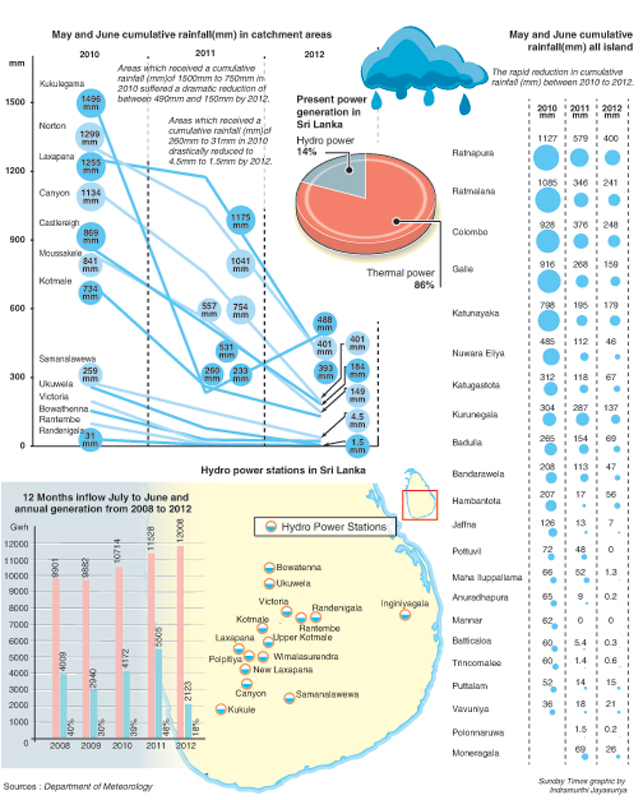News
Drought calamity, economic growth rate drops
Sri Lanka’s economic growth is reeling under the impact of a severe drought which has hit agricultural output and so far destroyed some 50,000 acres of paddy cultivation.Finance Ministry officials said earlier estimates of 7 per cent economic growth for this year may fall to 6.7 per cent due to the drought.
“The overall balance of payments deficit will also shoot up. The figures for this month will be worse,” a senior ministry official said.The Treasury had allocated Rs. 3.76 billion as drought relief for affected people in the North Central and North Western Provinces but increased it to at least Rs. 10 billion as tens of thousands of farmers in several districts had been affected, he said.
“We have not calculated the full impact of the drought on the agriculture industry so far. The government is confronted with a financial crisis and funds to meet import bills, repay loans and run the administration are drying up,” he warned.
Sri Lanka is experiencing a severe drought this year as the south-west monsoon has been delayed.
Another sector that is posing a severe threat to the economy is power generation. Power and Energy Minister Patali Champika Ranawaka said water levels in all reservoirs had dropped and the remaining capacity could not be used fully for power generation as water was being provided for agriculture and drinking purposes as well. As a result the CEB had to shift to high cost thermal power generation.
Sri Lanka’s tea exports have also fallen with production declining in the first quarter amid price weaknesses. The prevailing drought has affected paddy, vegetable and other food crop cultivation and vegetable prices have sky rocketed. Traders said supplies from all major cultivation areas had dropped.
Management Minister Mahinda Amaraweera said around 50,000 acres of paddy cultivation had been destroyed by the drought during this Yala season.
Farmers in six drought-affected districts of Jaffna, Kurunegala, Hambantota, Moneragala, Anuradhapura and Polonnaruwa would be provided chemical fertilizer and seed paddy free of charge for the next Maha season in addition to a monthly allowance of Rs. 6,000 to each drought affected farmer family, he said.
comments powered by Disqus





















